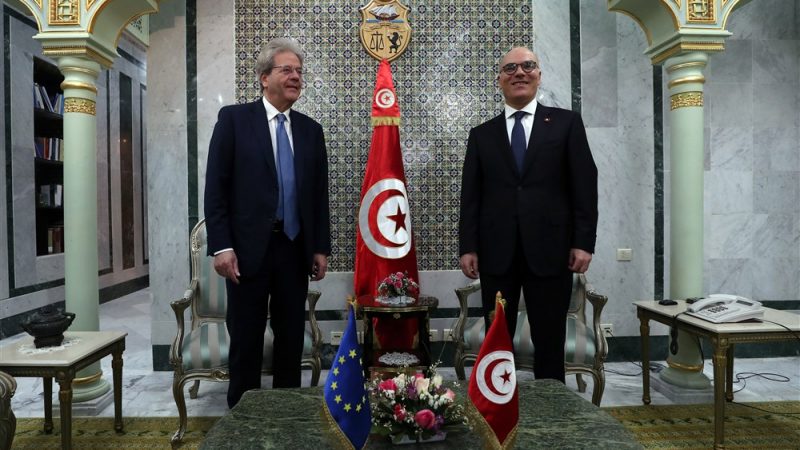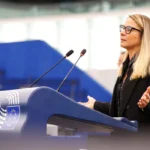Tunisia on Monday called on the European Union to show “more understanding” towards it after several European leaders sounded the alarm about the crisis the country is going through and the risks it poses for Europe.
This appeal was launched by Tunisian Foreign Minister Nabil Ammar when he received the European Commissioner for the Economy, Paolo Gentiloni, in Tunis.
Mr. Ammar “invited the European side to show more understanding of the particular nature of the phase that our country is going through and to adopt a responsible and constructive discourse that reflects the reality of the situation”, according to a press release from his ministry. .
He stressed that Tunis “counts on the mobilization of its own resources and on the economic and financial support of its partners, including the EU, for the success of its process of political, economic and social reforms”.
French President Emmanuel Macron and Italian Prime Minister Giorgia Meloni had called on Friday (March 24) to support Tunisia, which is facing a serious financial crisis, in order to contain the “migration pressure” that this country represents for Europe.
Tunisia, in the grip of a serious financial crisis, has been negotiating for several months with the International Monetary Fund for a loan of nearly two billion dollars, but discussions between the two parties seem to have stalled since an agreement in principle announced in mid-October.
The head of European diplomacy, Josep Borrell, for his part warned on March 20 that the situation in Tunisia was “very dangerous”, even mentioning a risk of “collapse” of the State likely to “cause migratory flows towards EU and cause instability in the MENA region” (Middle East and North Africa).
An analysis described as “disproportionate” and rejected by Tunis.
Not Alone”
Tunisia, some portions of the coastline of which are less than 150 km from the Italian island of Lampedusa, very regularly records attempts by migrants, mostly from sub-Saharan African countries, to leave for Italy.
Several dozen migrants from sub-Saharan Africa have died in a series of shipwrecks and others have been missing since a violent speech on February 21 by President Kais Saied slamming illegal immigration.
“My visit was also an opportunity to reaffirm our commitment to the values of democracy, inclusion and the rule of law,” said Mr. Gentiloni in a statement issued by the EU after the his visit to Tunisia, where the opposition accuses President Saied of “authoritarian drift” since he assumed full powers in July 2021.
“The European Commission remains determined to support the Tunisian people in the current extremely difficult economic context,” he added.
According to him, the Commission is “ready to consider additional macro-financial assistance if the necessary conditions are met. The first condition is the adoption by the IMF of a new disbursement program. It is essential that this can take place as soon as possible”.
“There are many common interests between the EU and Tunisia, for example the management of migration flows to Europe. In this context, I welcome the contacts that have been renewed between the Commission and the Tunisian authorities. We wish to continue in this dynamic of cooperation: Tunisia will not be left alone,” he concluded.
This article is originally published on euractiv.fr







